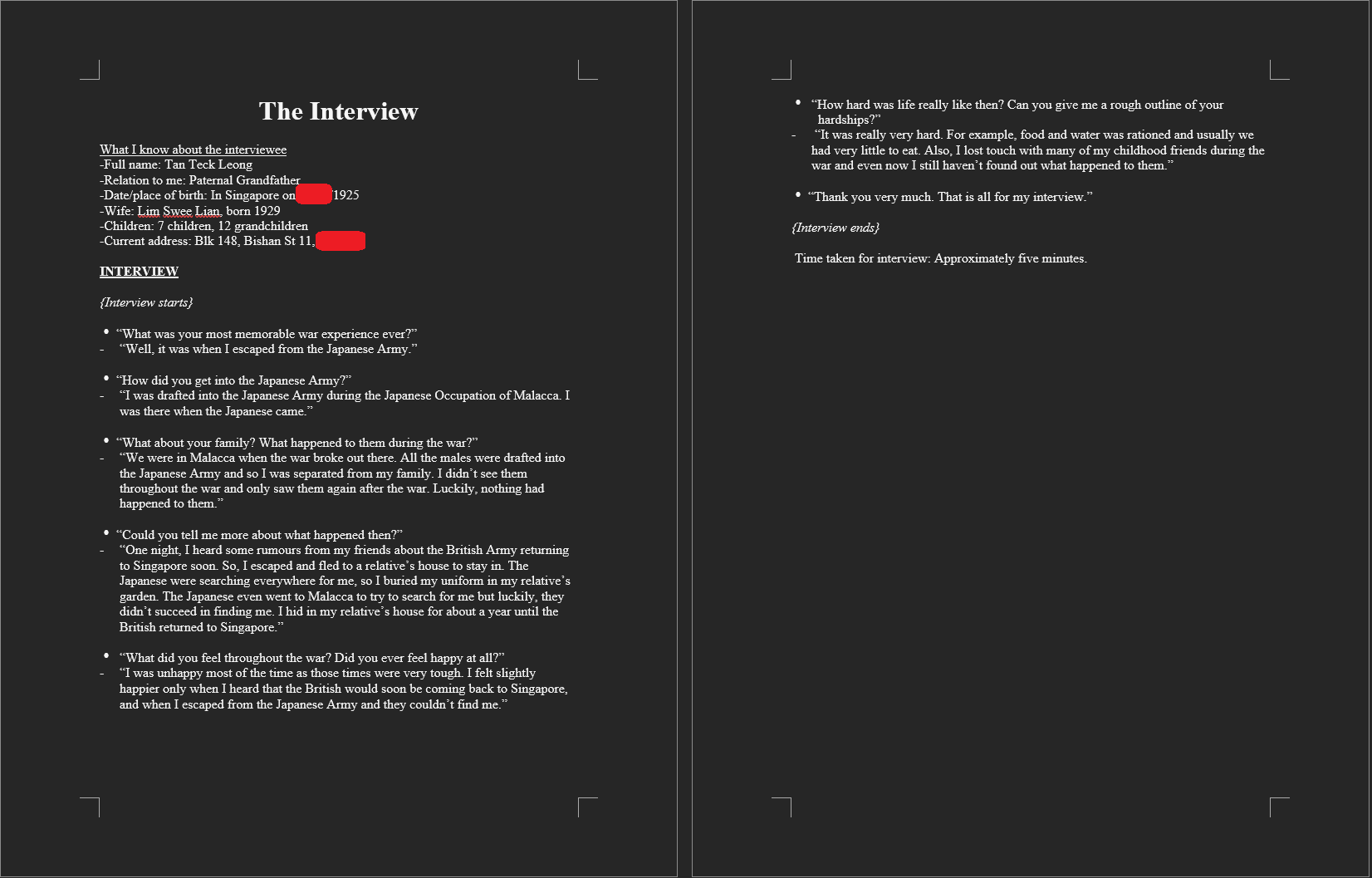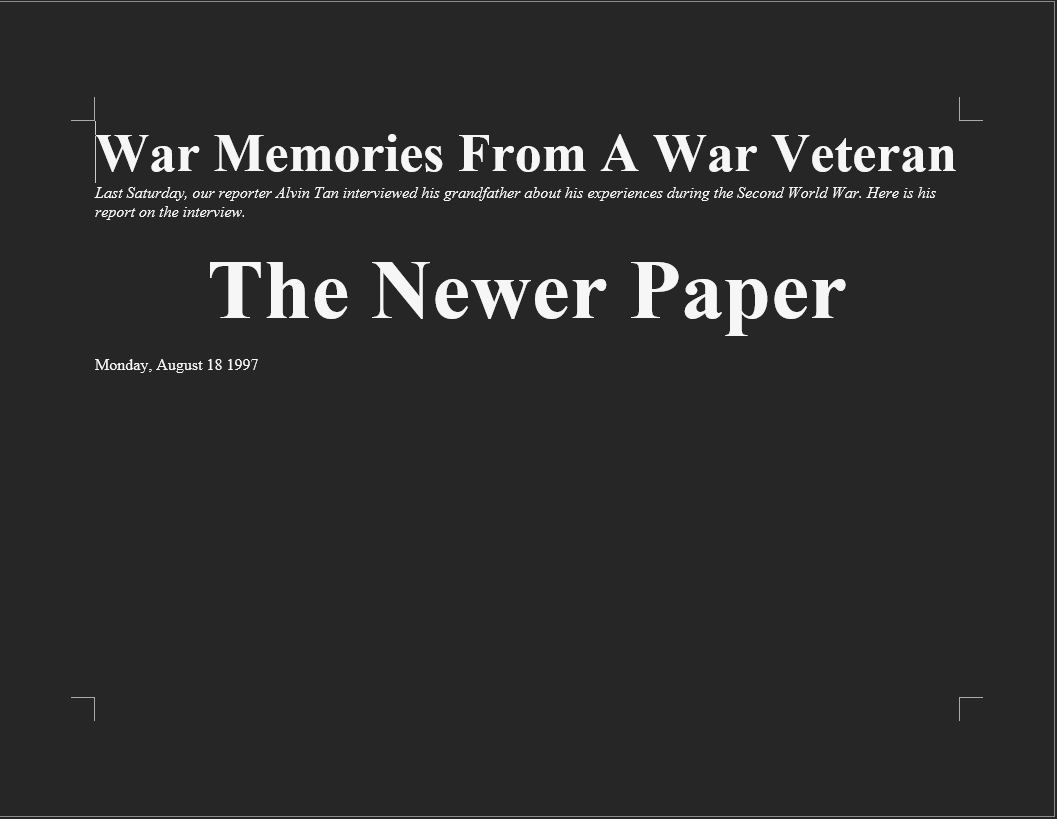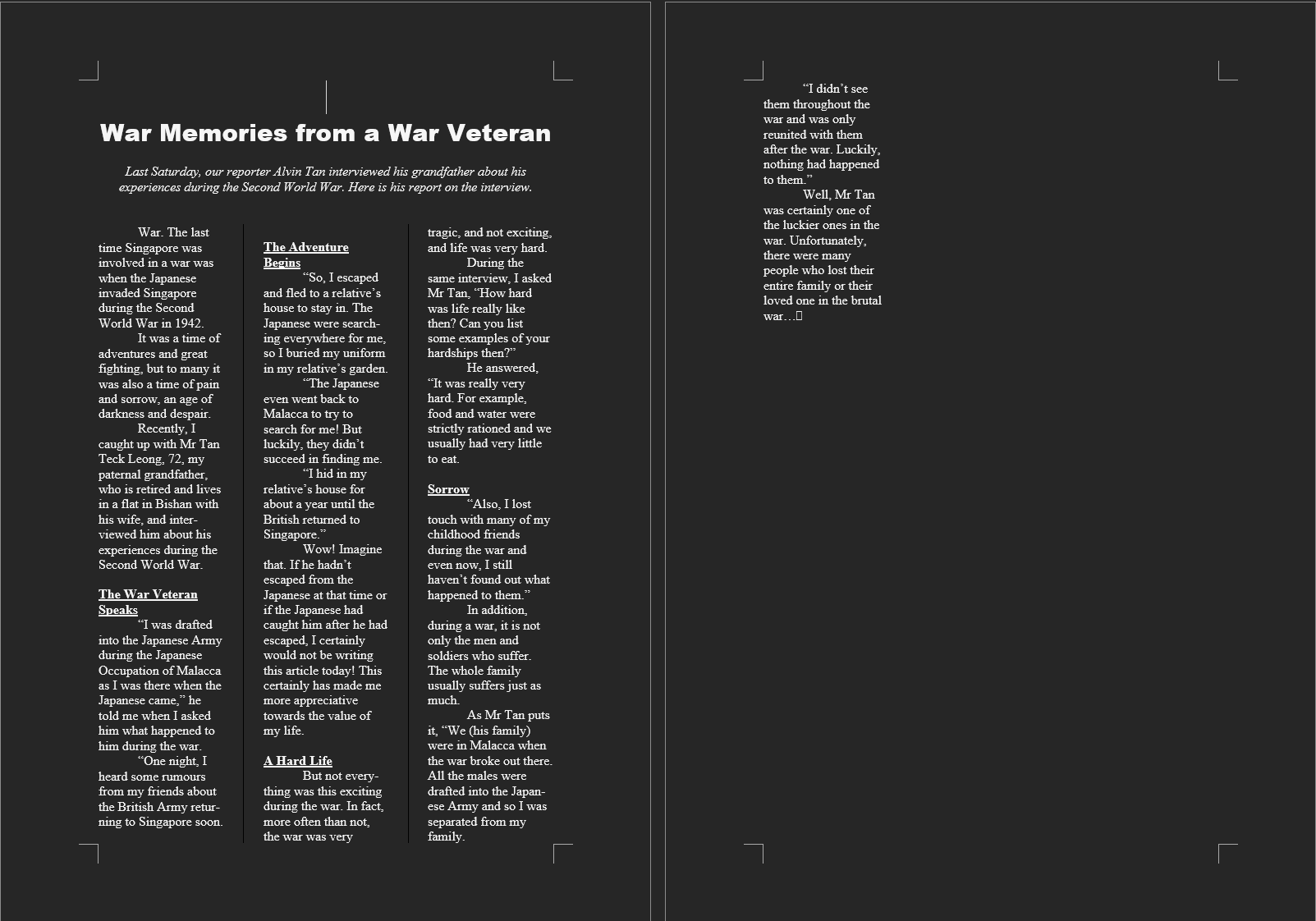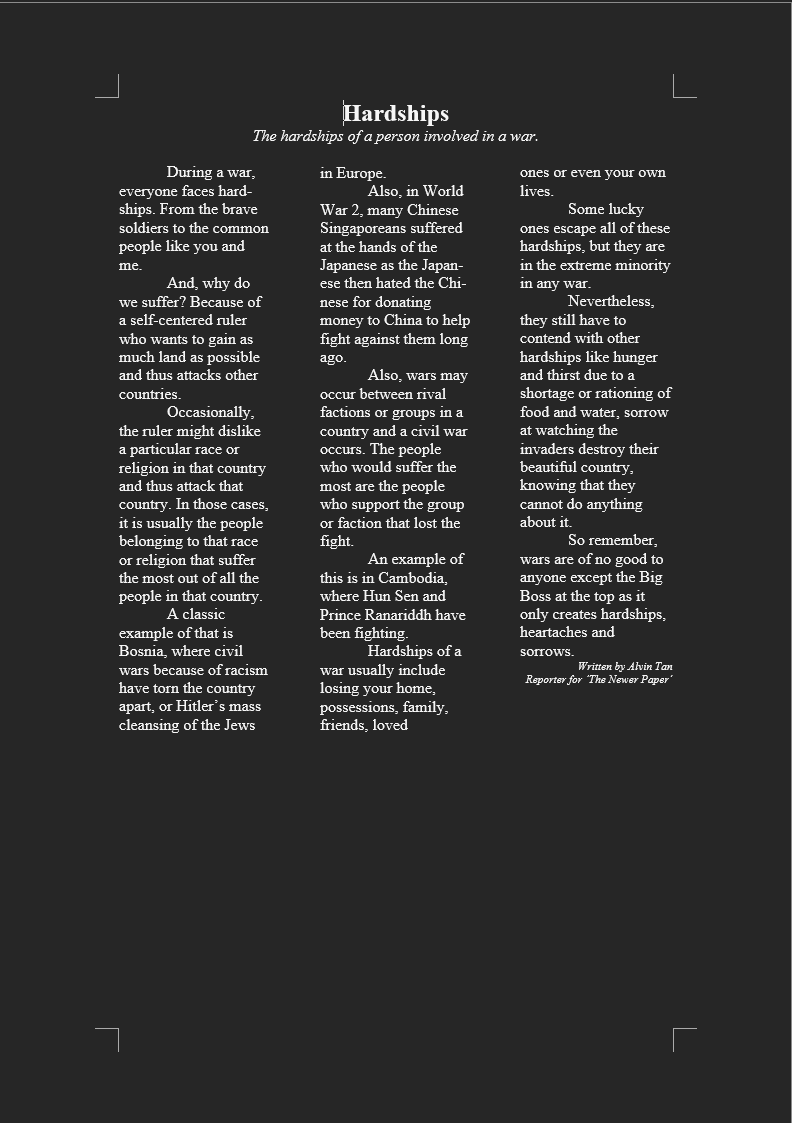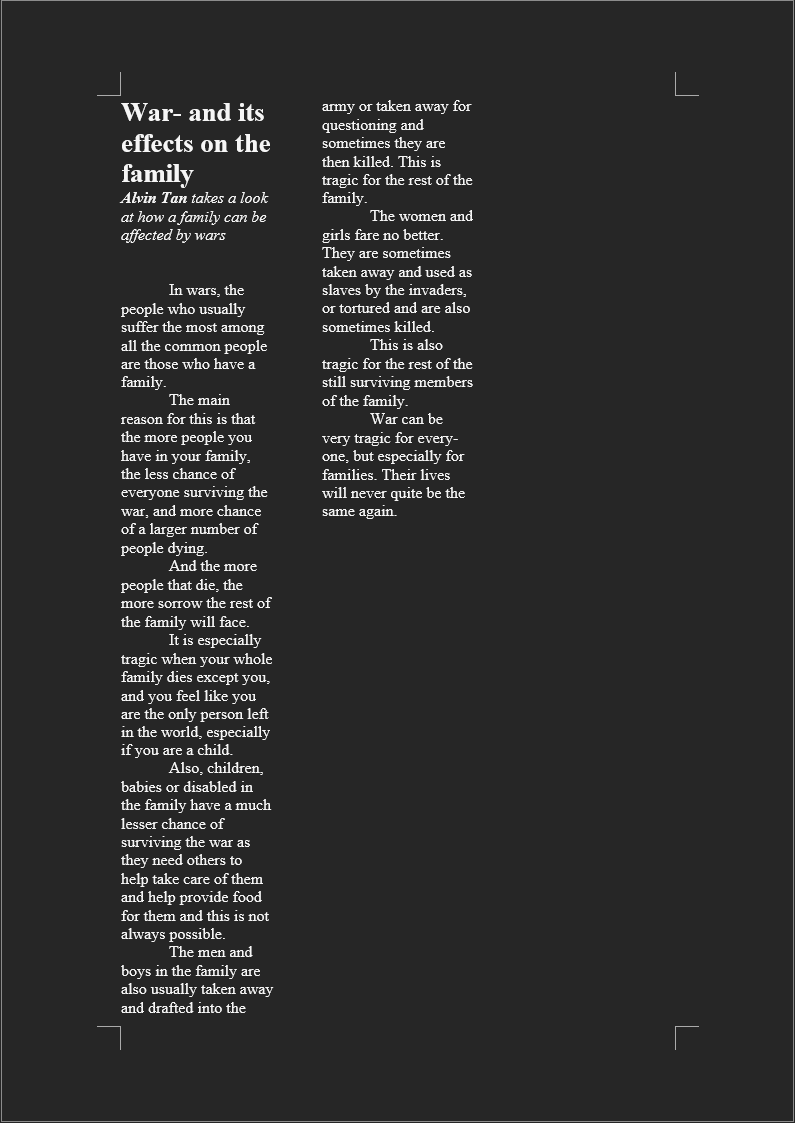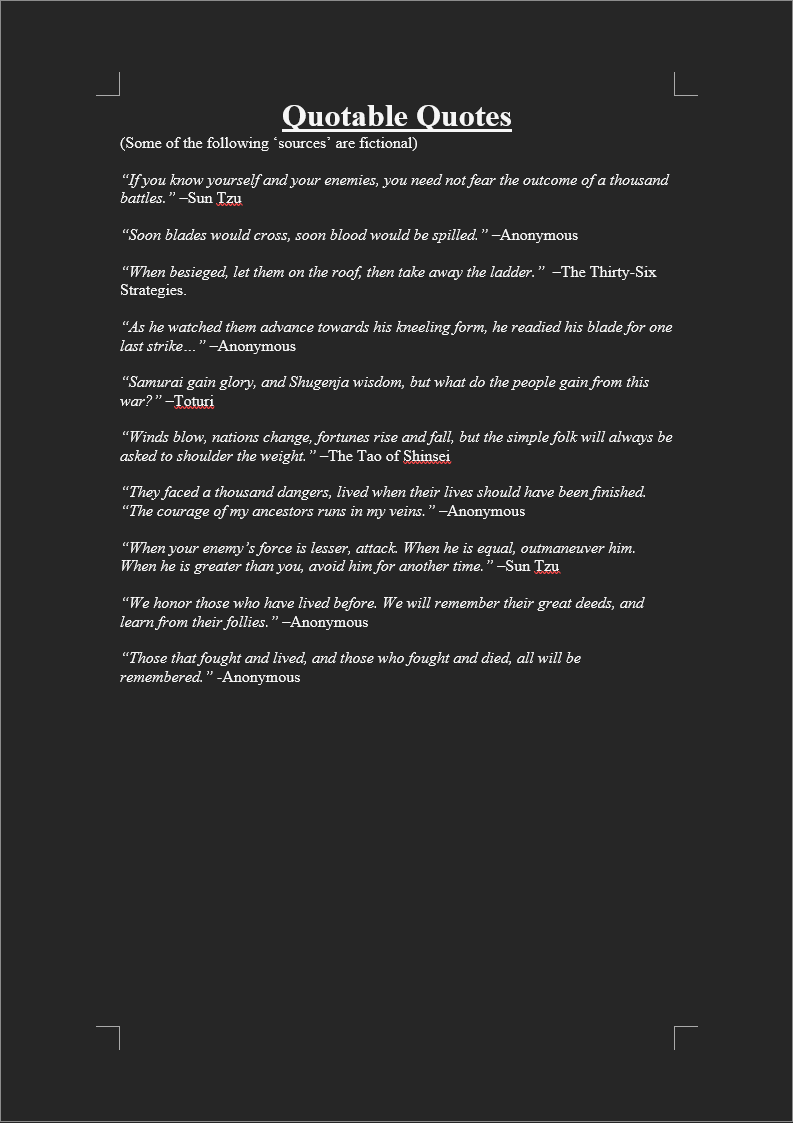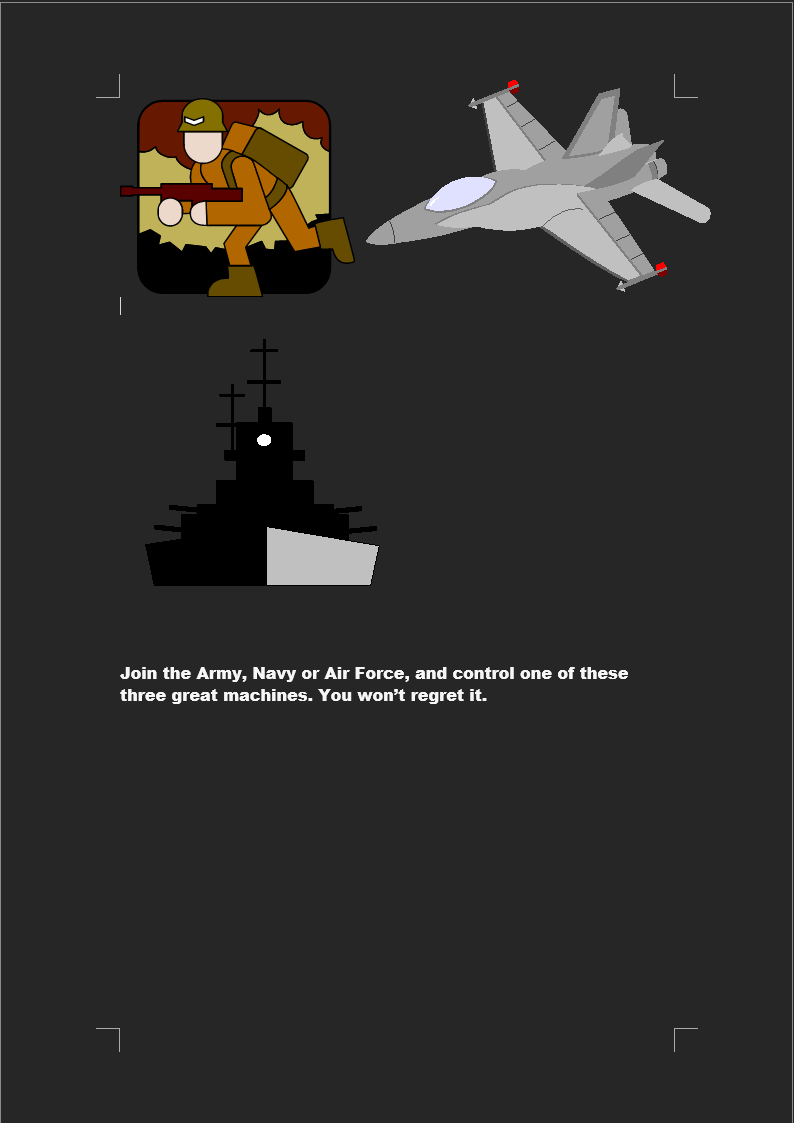What is this?
This is a history homework assignment that consisted of me acting as a newspaper reporter and interviewing someone, and then making a newspaper article (or three) out of it. I picked my grandfather, known elsewhere in the blog as Ah Kong (Hokkien for grandfather), and interviewed him in their Bishan HDB apartment.
As per the clues in the documents, mainly the callout in the newspaper headline that I did it “last Saturday” as well as the timestamp on the Interview document itself, this interview was done on Sat, Aug 16 1997, when I was in Secondary 1 in Dunman High. It was typed out in, well, Microsoft Word 8.0, apparently, using their multi-column and clipart features. It looks like the assignment itself was handed in on Aug 18 1997, so I think the Aug 12 1997 date in the document below was when I created the cover page, and Aug 16 1997 was for the specific interview itself, where Dad drove me to their house and I went into the bedroom with him to ask him my prepared questions. And then I spent the weekend finishing those pages, heh.
Being 1997, all these things happened in the early Internet age. We had internet access, but it was dialup and there just wasn’t a huge ton of information on the Internet yet, nor advanced word processing or graphical software, and most of the things I did on the computer were still local to the computer (which I was used to — I’d been using computers since around probably 1994 or 1995) and not from anything sourced online. Even all my pages back then were created separately, in eight separate documents instead of one large one, and I’m looking at that now and shaking my head. Anyway, I made screenshots of all these things below, and transcribed the important stuff too.
While I did lose many of my oldest files and homework and such, It’s crazy how some of these files have randomly survived for 27 years, even when I was not specifically .
Main Interview
INTERVIEW
{Interview starts}
“What was your most memorable war experience ever?”
– “Well, it was when I escaped from the Japanese Army.”
“How did you get into the Japanese Army?”
– “I was drafted into the Japanese Army during the Japanese Occupation of Malacca. I
was there when the Japanese came.”
“What about your family? What happened to them during the war?”
– “We were in Malacca when the war broke out there. All the males were drafted into the Japanese Army and so I was separated from my family. I didn’t see them throughout the war and only saw them again after the war. Luckily, nothing had happened to them.”
“Could you tell me more about what happened then?”
– “One night, I heard some rumours from my friends about the British Army returning to Singapore soon. So, I escaped and fled to a relative’s house to stay in. The Japanese were searching everywhere for me, so I buried my uniform in my relative’s garden. The Japanese even went to Malacca to try to search for me but luckily, they didn’t succeed in finding me. I hid in my relative’s house for about a year until the British returned to Singapore.”
“What did you feel throughout the war? Did you ever feel happy at all?”
– “I was unhappy most of the time as those times were very tough. I felt slightly happier only when I heard that the British would soon be coming back to Singapore, and when I escaped from the Japanese Army and they couldn’t find me.”
“How hard was life really like then? Can you give me a rough outline of your
hardships?”
– “It was really very hard. For example, food and water was rationed and usually we had very little to eat. Also, I lost touch with many of my childhood friends during the war and even now I still haven’t found out what happened to them.”
“Thank you very much. That is all for my interview.”
{Interview ends}
Time taken for interview: Approximately five minutes.
Main Article
War Memories from a War Veteran
Last Saturday, our reporter Alvin Tan interviewed his grandfather about his experiences during the Second World War. Here is his report on the interview.
War. The last time Singapore was involved in a war was when the Japanese invaded Singapore during the Second World War in 1942.
It was a time of adventures and great fighting, but to many it was also a time of pain and sorrow, an age of darkness and despair.
Recently, I caught up with Mr Tan Teck Leong, 72, my paternal grandfather, who is retired and lives in a flat in Bishan with his wife, and inter- viewed him about his experiences during the Second World War.
The War Veteran Speaks
“I was drafted into the Japanese Army during the Japanese Occupation of Malacca as I was there when the Japanese came,” he told me when I asked him what happened to him during the war.
“One night, I heard some rumours from my friends about the British Army retur- ning to Singapore soon.
The Adventure Begins
“So, I escaped and fled to a relative’s house to stay in. The Japanese were search- ing everywhere for me, so I buried my uniform in my relative’s garden.
“The Japanese even went back to Malacca to try to search for me! But luckily, they didn’t succeed in finding me.
“I hid in my relative’s house for about a year until the British returned to Singapore.”
Wow! Imagine that. If he hadn’t escaped from the Japanese at that time or if the Japanese had caught him after he had escaped, I certainly would not be writing this article today! This certainly has made me more appreciative towards the value of my life.
A Hard Life
But not every- thing was this exciting during the war. In fact, more often than not, the war was very tragic, and not exciting, and life was very hard.
During the same interview, I asked Mr Tan, “How hard was life really like then? Can you list some examples of your hardships then?”
He answered, “It was really very hard. For example, food and water were strictly rationed and we usually had very little to eat.
Sorrow
“Also, I lost touch with many of my childhood friends during the war and even now, I still haven’t found out what happened to them.”
In addition, during a war, it is not only the men and soldiers who suffer. The whole family usually suffers just as much.
As Mr Tan puts it, “We (his family) were in Malacca when the war broke out there.
All the males were drafted into the Japan-ese Army and so I was separated from my family.
“I didn’t see them throughout the war and was only reunited with them after the war. Luckily, nothing had happened to them.”
Well, Mr Tan was certainly one of the luckier ones in the war. Unfortunately, there were many people who lost their entire family or their loved one in the brutal war…
Hardships
The hardships of a person involved in a war.
During a war, everyone faces hard- ships. From the brave soldiers to the common people like you and me.
And, why do we suffer? Because of a self-centered ruler who wants to gain as much land as possible and thus attacks other countries.
Occasionally, the ruler might dislike a particular race or religion in that country and thus attack that country. In those cases, it is usually the people belonging to that race or religion that suffer the most out of all the people in that country.
A classic example of that is Bosnia, where civil wars because of racism have torn the country apart, or Hitler’s mass cleansing of the Jews in Europe.
Also, in World War 2, many Chinese Singaporeans suffered at the hands of the Japanese as the Japan-ese then hated the Chi-nese for donating money to China to help fight against them long ago.
Also, wars may occur between rival factions or groups in a country and a civil war occurs. The people who would suffer the most are the people who support the group or faction that lost the fight.
An example of this is in Cambodia, where Hun Sen and Prince Ranariddh have been fighting.
Hardships of a war usually include losing your home, possessions, family, friends, loved ones or even your own lives.
Some lucky ones escape all of these hardships, but they are in the extreme minority in any war.
Nevertheless, they still have to contend with other hardships like hunger and thirst due to a shortage or rationing of food and water, sorrow at watching the invaders destroy their beautiful country, knowing that they cannot do anything about it.
So remember, wars are of no good to anyone except the Big Boss at the top as it only creates hardships, heartaches and sorrows.
Written by Alvin Tan
Reporter for ‘The Newer Paper’
War- and its effects on the family
Alvin Tan takes a look at how a family can be affected by wars
In wars, the people who usually suffer the most among all the common people are those who have a family.
The main reason for this is that the more people you have in your family, the less chance of everyone surviving the war, and more chance of a larger number of people dying.
And the more people that die, the more sorrow the rest of the family will face.
It is especially tragic when your whole family dies except you, and you feel like you are the only person left in the world, especially if you are a child.
Also, children, babies or disabled in the family have a much lesser chance of surviving the war as they need others to help take care of them and help provide food for them and this is not always possible.
The men and boys in the family are also usually taken away and drafted into the army or taken away for questioning and sometimes they are then killed. This is tragic for the rest of the family.
The women and girls fare no better. They are sometimes taken away and used as slaves by the invaders, or tortured and are also sometimes killed.
This is also tragic for the rest of the still surviving members of the family.
War can be very tragic for every- one, but especially for families. Their lives will never quite be the same again.
Screenshots
These are just screenshots of the Microsoft Word .doc files that were saved to my diskette, eventually transferred to my personal stash, and that have since followed along with me in my journey of life all these decades later. Crazy how old some of these files are. I wasn’t about to upload the actual files themselves though, so screenshots of their contents will have to do. Look at those weird little clipart things I inserted for the project.
The backgrounds of these files weren’t actually black though, they would have been black text on white background way back when, it’s just that my current iteration of Microsoft Word was in dark mode.
Document dated: Aug 18 1997.

